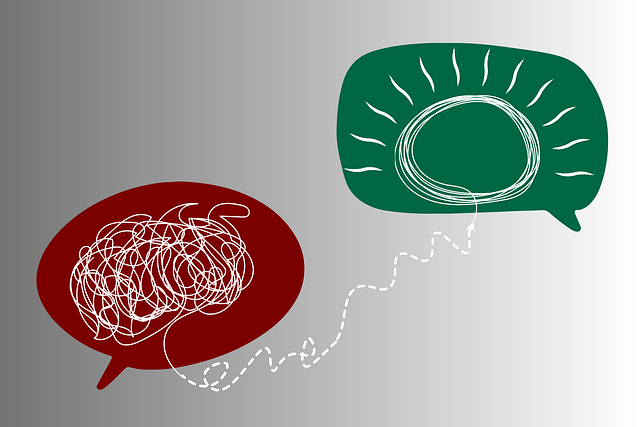Elderly individuals with panic disorder and anxiety attacks require specialized therapy addressing unique challenges, such as tailored cognitive-behavioral therapy (CBT), support groups, stress management workshops, and trauma support using EMDR. These approaches empower seniors to manage symptoms, improve self-esteem, and enhance quality of life by processing traumatic memories, reframing negative thoughts, and building community.
Trauma support services play a vital role in addressing the unique challenges faced by the elderly population. This article delves into understanding elder panic disorder and anxiety, highlighting symptoms and their profound impact on daily life. We explore the transformative power of therapy in managing these conditions, emphasizing its role as a powerful tool for recovery. Additionally, we provide insights into accessible services and effective strategies tailored to meet the specific needs of elderly individuals suffering from anxiety disorders, focusing on therapy for elders with panic attacks.
- Understanding Elderly Panic Disorder and Anxiety: Symptoms and Impact
- The Role of Therapy in Supporting Elders with Panic Attacks
- Accessible Trauma Support Services for the Elderly Population
- Effective Strategies for Providing Therapy to Elderly Individuals with Anxiety Disorders
Understanding Elderly Panic Disorder and Anxiety: Symptoms and Impact

Elderly individuals often face unique challenges when it comes to mental health issues like panic disorder and anxiety attacks. Understanding these conditions is crucial in providing effective support, especially within senior living communities or healthcare settings. Recognizing the symptoms is an essential first step. Elderly panic disorder may manifest as sudden and intense fear or discomfort, leading to physical reactions such as rapid heartbeat, sweating, trembling, or shortness of breath. These episodes can be triggered by various factors, including stressful events, health concerns, or even everyday situations that once brought comfort. Over time, anxiety can spiral into a persistent state of worry and fear, impacting daily functioning and quality of life.
The impact of these disorders on the elderly population is profound. It can lead to social withdrawal, isolation, and a decline in overall self-esteem. Self-awareness exercises and therapy for elders suffering from panic disorder and anxiety attacks can be transformative. Techniques aimed at improving self-esteem and depression prevention are valuable tools, encouraging individuals to confront their fears and regain control. Through specialized care, including cognitive-behavioral therapy, support groups, and personalized coping strategies, the elderly can learn to manage their symptoms effectively, leading to improved mental well-being and a higher quality of life.
The Role of Therapy in Supporting Elders with Panic Attacks

Therapy plays a pivotal role in supporting elders experiencing panic attacks, offering a safe and structured environment to process traumatic experiences and manage symptoms effectively. Cognitive Behavioral Therapy (CBT), for instance, is widely recognized as an evidence-based approach for treating panic disorder and anxiety attacks. Through CBT, elders can learn to identify and challenge negative thought patterns and develop coping strategies tailored to their unique needs. This therapy facilitates a deeper understanding of the underlying causes of panic attacks, fostering resilience and enhancing overall mental well-being.
Incorporating elements of Mental Health Policy Analysis and Advocacy within therapeutic settings can further empower elders. By advocating for their mental health rights and raising awareness about available resources, therapists support individuals in navigating systemic barriers. Moreover, organizing Stress Management Workshops can equip elders with practical tools to manage stress, reduce anxiety, and prevent future panic episodes. These holistic approaches not only address the symptoms but also promote a sense of empowerment, enabling elders to take control of their mental health journey.
Accessible Trauma Support Services for the Elderly Population

The elderly population faces unique challenges when it comes to accessing trauma support services. Many older adults may have experienced traumatic events throughout their lives but never sought help, often due to societal stigma or a lack of understanding about available resources. With age, individuals might also develop specific mental health concerns, such as panic disorder and anxiety attacks, which require tailored care. The good news is that modern trauma support services are increasingly recognizing these needs, offering specialized programs for the elderly.
One effective approach is incorporating mind over matter principles and conflict resolution techniques into therapy for elders. These strategies empower individuals to reframe negative thoughts and confront past traumas in a safe environment. Additionally, depression prevention can be addressed through these support systems, ensuring that the elderly receive holistic care tailored to their unique circumstances.
Effective Strategies for Providing Therapy to Elderly Individuals with Anxiety Disorders

Elderly individuals with anxiety disorders often require tailored therapy approaches to address their unique needs and challenges. One effective strategy is cognitive-behavioural therapy (CBT), which helps seniors identify and challenge negative thought patterns contributing to anxiety. Through CBT, they can learn relaxation techniques and gradual exposure strategies to manage panic attacks and phobias. Group therapy sessions specifically designed for the elderly can also be beneficial, fostering a sense of community and providing peer support, which is crucial for building empathy and reducing feelings of isolation.
Trauma support services play a vital role in anxiety relief for seniors by offering specialized care. Therapists trained in trauma-focused approaches, such as eye movement desensitization and reprocessing (EMDR), can help individuals process and overcome past traumatic events that may be triggering their current anxiety disorders. Additionally, empathy building strategies are essential; therapists should demonstrate genuine understanding and compassion, creating a safe space for elders to openly discuss their fears and concerns without judgment.
Trauma support services tailored for the elderly population play a pivotal role in addressing panic disorder and anxiety attacks, which significantly impact their quality of life. By combining understanding, accessible services, and effective therapy strategies, such as cognitive-behavioral therapy, we can help elders manage symptoms, regain control, and enhance their overall well-being. Ensuring these support systems are readily available is crucial for fostering a more inclusive and compassionate society that cares for its aging members.














